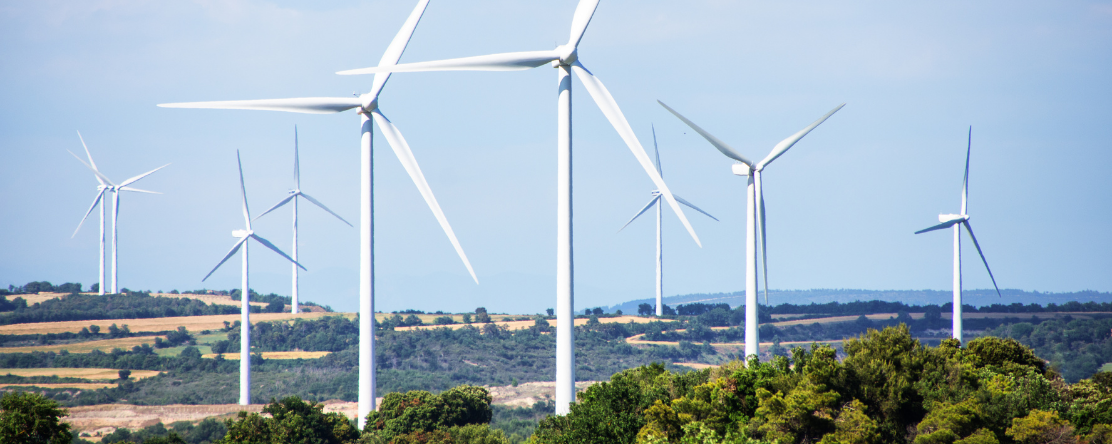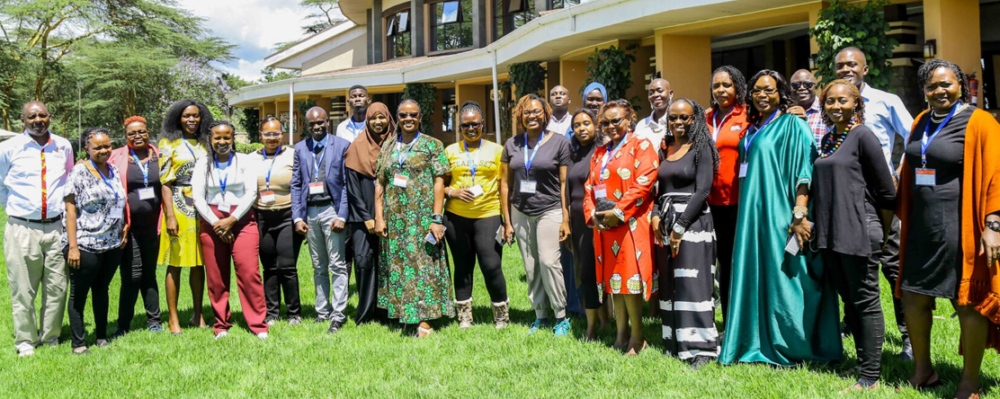
Forging Climate Solutions: How to Accelerate Action Across America
- Linda Rudolph, MD, MPH
- Commission on Accelerating Climate Action
-
Focus Areas
Capacity Building & Leadership, Environmental Health -
Issues
Climate Change -
Expertise
Public Policy Development

Momentum is growing for action on climate change. But actual shifts in U.S. investment and policy have been erratic, failing to address the needs of communities that will be hardest hit by climate change. American climate policy lacks a broad, durable commitment to maintain and accelerate progress. Despite significant advances, including recent federal legislation, there remains much more to be done, in Washington and across the nation.
In this report, the nonpartisan Commission on Accelerating Climate Action of the American Academy of Arts and Sciences explores how we can forge a whole-of-society commitment to addressing climate change and identifies how to build a durable and inclusive political coalition for climate action. PHI’s Dr. Linda Rudolph serves as a member of the Commission and is an author of the report.
Forging Climate Solutions: How to Accelerate Action Across America offers five key strategies for action on how corporations, frontline communities, government and environmental groups can work together to mobilize investments, build infrastructure, reduce emissions, and prepare for the impacts of climate change.
Read the ReportTakeaways and Strategies for Accelerating Climate Action:
This report offers five strategies and 21 recommendations for forging a climate blueprint and articulates how a whole-of-society commitment can emerge.
STRATEGY 1: Prioritize Equity, Fairness, and Justice in Climate Action to ensure that strategies lessen, not exacerbate, harm by focusing on those who will suffer from the consequences of climate change, energy transition, and adaptation efforts.
- Prioritize investment in communities that are on the front lines and are the hardest hit by the consequences of climate change, energy transition, and adaptation efforts.
- Build capacity for climate action by engaging diverse voices, removing barriers, and disseminating promising practices.
- Weave frontline communities and Indigenous knowledge into research on controlling pollution and managing the impacts of climate change.
STRATEGY 2: Engage and Educate Diverse Communities to shift climate change communication from an elite, science-focused endeavor to one led by credible voices from diverse communities.
- Empower diverse and trusted messengers to communicate climate change issues that resonate with specific communities.
- Support and celebrate concrete commitments to climate action by government, businesses, community groups, and NGOs.
- Combat climate misinformation in the news and across social media.
- Expand access to climate education across K–16 subjects and into formal and informal education venues. Advocate for climate education in all state curricula and develop tools for knowledge assessment.
STRATEGY 3: Mobilize Investment to unleash the immense capital of the public and private sectors needed to cut emissions and make society more resilient to the impacts of climate change.
- Design, implement, and iteratively evaluate policies to push the technological frontier.
- Leverage investments in infrastructure modernization to correct historical underinvestment in marginalized communities.
- Create more robust, credible, and comprehensive incentives to retire and replace high-emission facilities and vulnerable infrastructure.
- Redesign permitting processes to be less burdensome and more trustworthy.
- Strengthen the mandate for companies to measure and disclose climate-related physical and transitional risks that are auditable, replicable, and material.
STRATEGY 4: Deploy Diverse Options for Controlling Emissions to send clear market signals to investors to accelerate mitigation across all sectors.
- Implement a fair carbon price in conjunction with other policies to create strong demand for low-emission technologies.
- Cooperate with international allies to realign trade rules in favor of emissions reductions and make supply chains more resilient.
- Advance efforts to control non-CO2 greenhouse gases and climate-warming aerosols, especially pollutants that have large impacts on human health and the environment.
- Incentivize farmers and other landowners to decrease greenhouse gas emissions and increase carbon sequestration.
- Support effective nature-based climate solutions.
STRATEGY 5: Ensure Adaptation at All Levels of Society to protect vulnerable communities, respond to disasters, and enhance national security, which will require vast resources, coordination, and planning at the federal, state, and local levels.
- Spur increased investment in comprehensive adaptation plans through codevelopment with the federal government, states, tribes, cities, companies, and NGOs, including justice-centered voices from civil society.
- Improve coordination and accessibility of existing climate resources and investments across federal agencies.
- Invest in a diverse portfolio of adaptation options, including both responses to specific threats and broad commitments to building resilience.
- Identify and eliminate perverse incentives, such as subsidies for hazard insurance, that have impeded efforts to understand and respond to climate-related risks.
The country and the world must act now. Some of the actions detailed in this report can—and must—be accomplished in the next five years. Other endeavors will require time to achieve fruition, but it is imperative that the underlying research and planning begin now. And while we must act with speed and efficiency, we cannot ignore the needs of frontline communities. The work we do to solve the climate crisis must increase equity, not perpetuate or intensify existing harm.Commission on Accelerating Climate Action
Forging Climate Solutions: How to Accelerate Action Across America
PHI’s Dr. Linda Rudolph served as a member of the Commission on Accelerating Climate Action at the American Academy of Arts and Sciences. The Commission leverages its diverse composition to identify strategies for building a durable and inclusive political coalition for climate action.
Work With Us
You change the world. We do the rest. Explore fiscal sponsorship at PHI.
Support Us
Together, we can accelerate our response to public health’s most critical issues.
Find Employment
Begin your career at the Public Health Institute.


